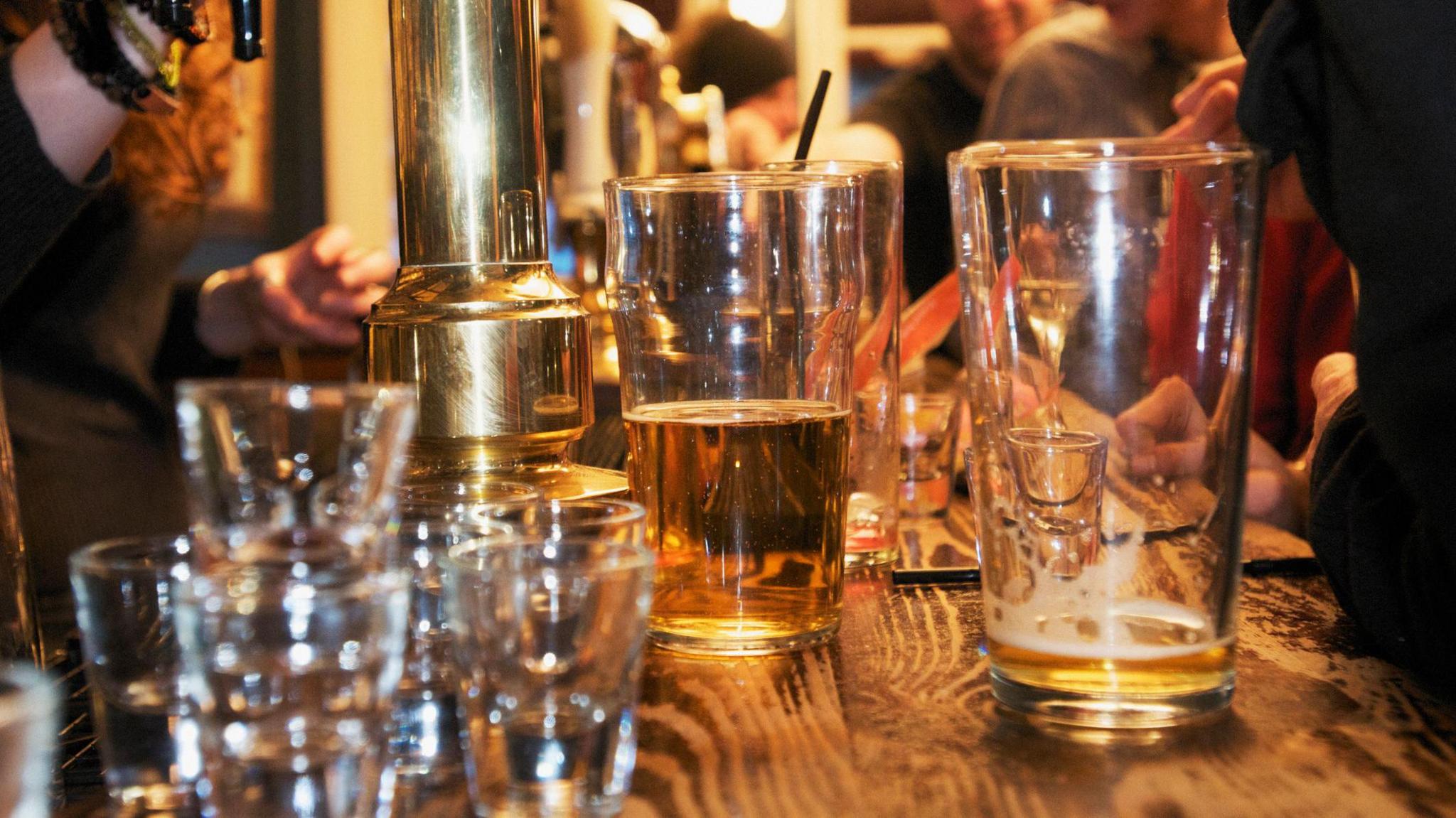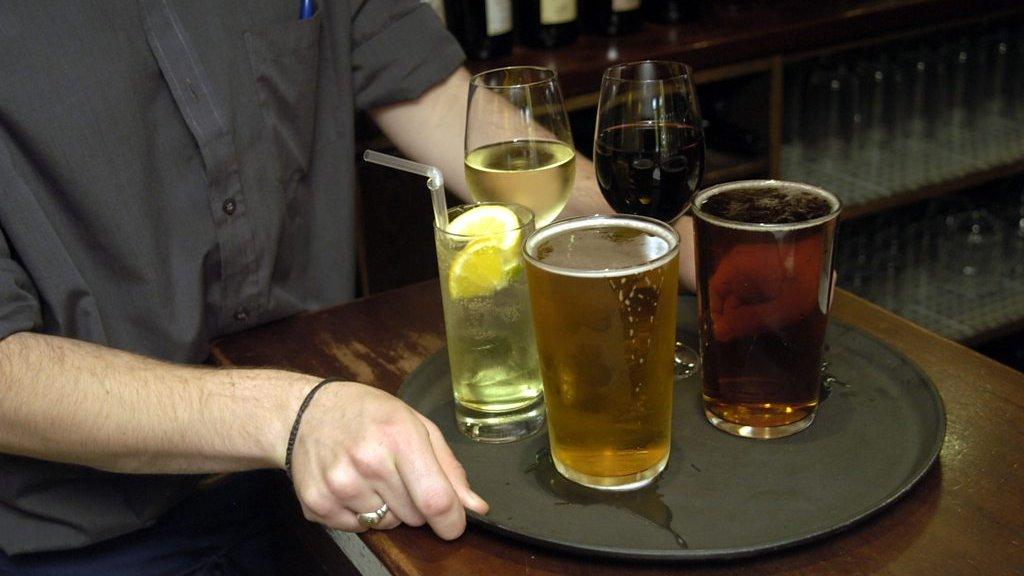Freshers' week police plea over spiking

Police in Hampshire have worked with bars, clubs and universities to raise awareness of spiking
- Published
Students have been urged to report suspected cases of drink and needle spiking ahead of freshers' week events.
Hampshire Constabulary said it received received 169 reports of the offence over the past 12 months.
It said the level of spiking was thought to be under-reported and can have a "significant, traumatic impact on victims".
The force is backing a campaign with universities, bars and clubs to raise awareness of the dangers of spiking and said people should vigilant to the symptoms.
The force said it was challenging to investigate because drugs pass through the system quickly and there was often limited evidence to identify offenders.
It said early reporting and police forensic testing was "key" to successful prosecutions.
Recent reporting data for Hampshire Constabulary showed between September 2024 and August 2025, the force received 169 reports of spiking.
One hundred and twenty were suspected drink spiking and 20 were alleged needle spiking.
Supt Phil Lamb said: "Spiking is an abhorrent crime and can have significant, traumatic impact on victims and feelings of safety.
"Women, and men, should be able to enjoy a night out without fear of being spiked and all pubs, clubs and other venues we work with strive to ensure they are a safe space for all.
"The early reporting of spiking and testing is key as drugs can pass through the system quickly."
Police are visiting colleges and universities to awareness of the issues among students at the beginning of the academic term.
How to help if someone has had their drink spiked
Spiking is when someone puts alcohol or drugs into another person’s drink or body without their consent or knowledge.
The common symptoms associated with someone having been spiked include confusion, lack of coordination, slurred speech, nausea, hallucinations, vomiting, paranoia and unconsciousness.
Tell a bar manager, bouncer or member of staff
Stay with them and keep talking to them
Call an ambulance if their condition deteriorates
Do not let them go home on their own
Do not let them leave the venue with someone you do not know or trust
If possible, try to prevent them drinking more alcohol as this could lead to more serious problems
Source: Drinkaware, external
Get in touch
Do you have a story BBC Hampshire & Isle of Wight should cover?
You can follow BBC Hampshire & Isle of Wight on Facebook, external, X (Twitter), external, or Instagram, external.
- Published25 November 2021

- Published12 August 2017

- Published25 November 2021
